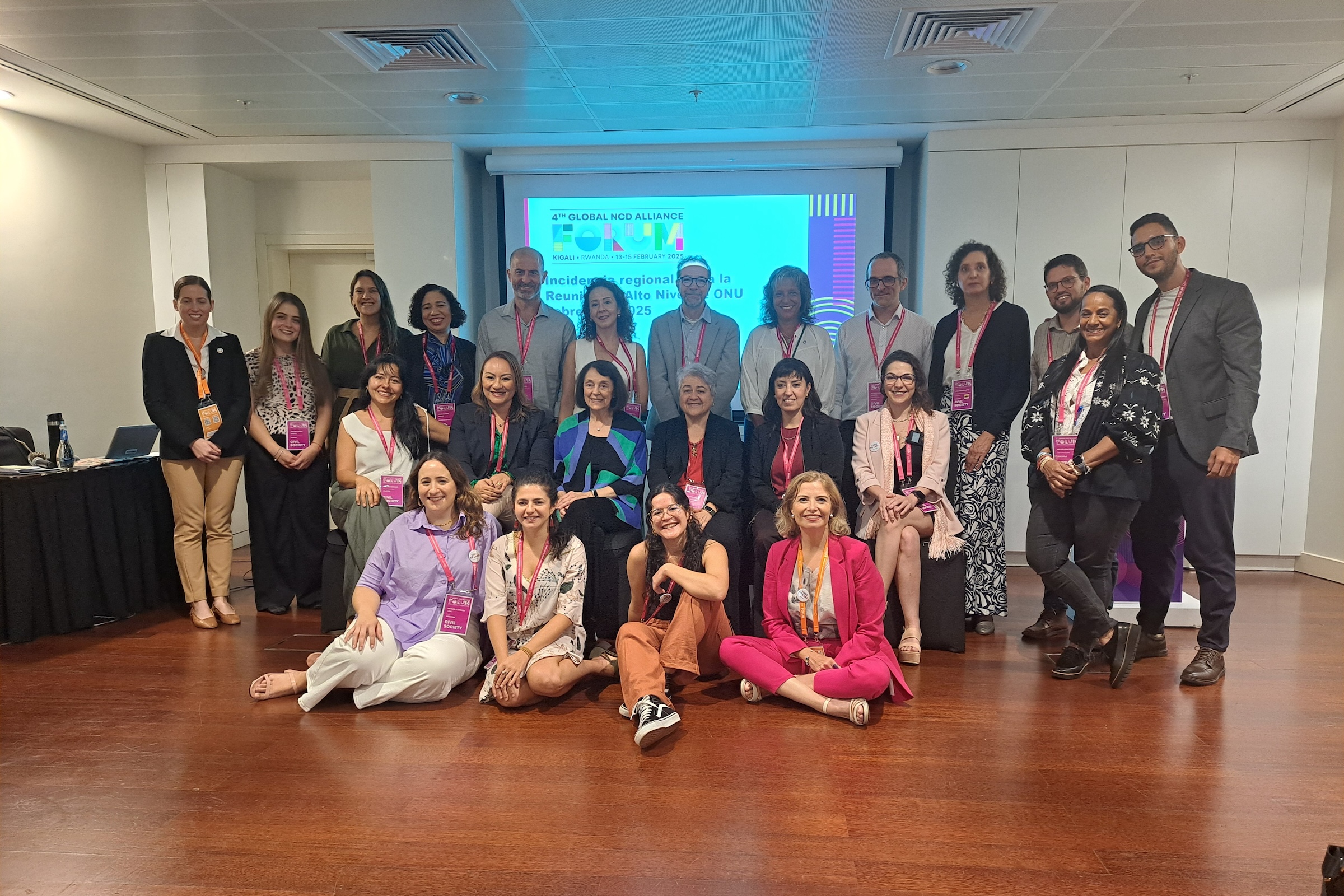In the Americas, the civil society movement working to promote public health policies has established itself as an independent actor, free of conflicts of interest, acting as a guardian of the right to health and demanding that governments move from words to action.
For years, the Healthy Latin America Coalition (CLAS) has worked alongside civil society organisations that lead advocacy processes to ensure healthier environments and effective public health policies. From experience, we know that passing a law or regulation is only one step on the path to guaranteeing the right to health. The real challenge comes afterwards: allocating resources, resisting industry pressure, and sustaining the policy over time. That is where genuine, transparent, and committed leadership is needed.
This September, the Fourth United Nations High-Level Meeting on Noncommunicable Diseases (NCDs) and Mental Health will take place in New York. This meeting is a major opportunity to align positions and demand concrete prevention measures from governments. However, in our region, we are concerned by the widespread failure to meet commitments—both in policy and in implementation. Promises are not enough; follow-up is essential. There are countless examples of countries publicly announcing policies on tobacco control or restrictions on unhealthy food marketing to children, among others. Yet over time, their implementation stalls or is even weakened.
Leadership with Responsibility: Accountability as a Central Pillar
This year, we want to highlight a key dimension: accountability. There is no real leadership without responsibility. Leadership means reporting, submitting to oversight, correcting mistakes, and, above all, ensuring that public policies lead to real, tangible, and immediate improvements for everyone. In this regard, civil society plays a crucial role in supporting governments.
Resisting Commercial Determinants
In the field of public health policy, we must ensure that decision-making processes are free from conflicts of interest that could undermine the right to health. In the NCD agenda in particular, this has become increasingly urgent given the growing influence of commercial actors whose interests are in direct conflict with health rights.
This issue is especially relevant now, as negotiations advance on the new Political Declaration for the High-Level Meeting on NCDs. Civil society has watched with concern as industries—particularly the alcohol industry—exert pressure to weaken the text, seeking to minimise governments’ commitments to regulate their products. This corporate interference not only threatens the final content of the document but also undermines people’s right to health policies based on evidence and the public interest.
CLAS member organisations work actively throughout the region to identify, prevent, and expose conflicts of interest through monitoring mechanisms, analysis of corporate ties, and advocacy for stronger regulatory frameworks. This technical and strategic work helps protect the integrity of policy development and implementation processes.
The upcoming United Nations High-Level Meeting on NCDs is a key opportunity to bring these messages to the global stage. But the leadership we need is not measured only in speeches or commitments—it is measured in action, in coherence, and in the willingness to be held accountable.
At CLAS, we will continue working alongside our partner organisations across the region to demand public policies that are effective, sustained, and impactful.






